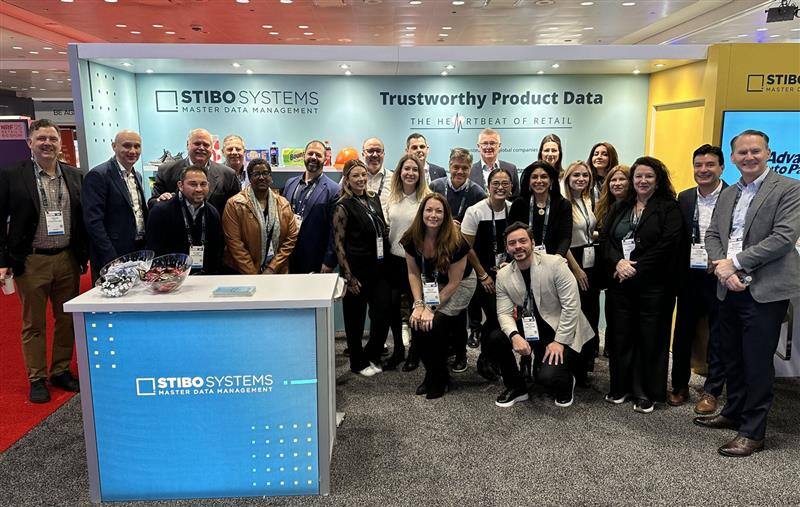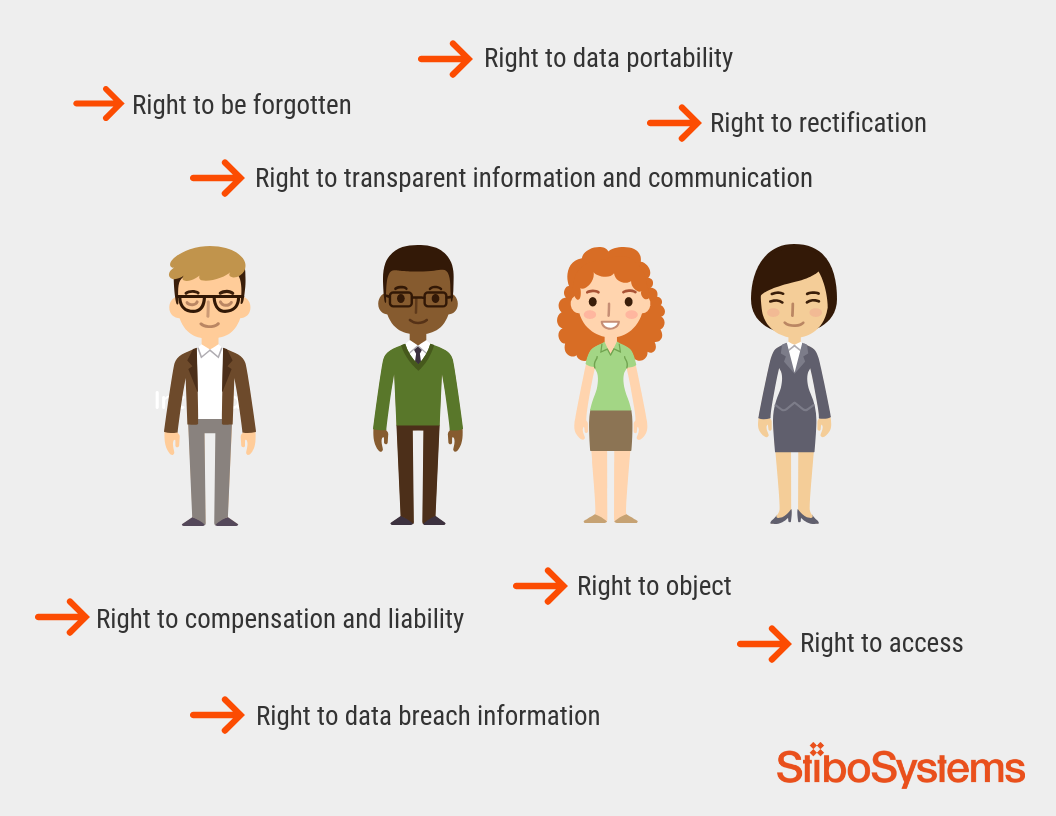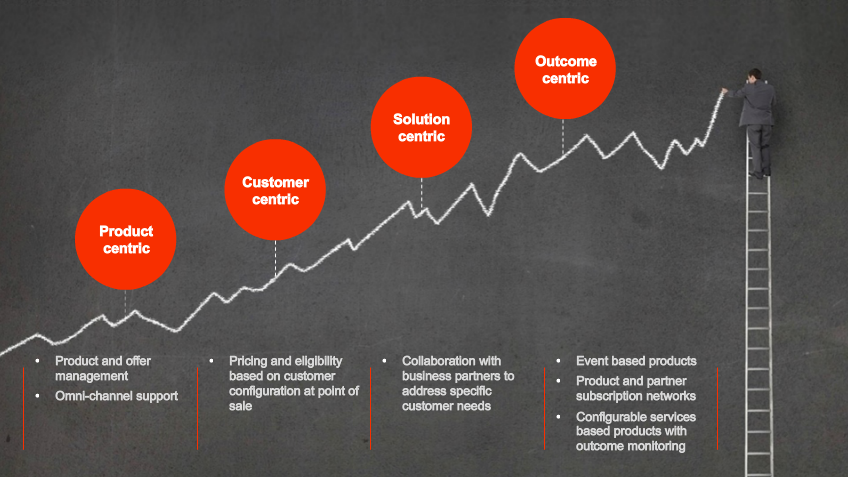The energy of NRF 2025 was unmistakable. The industry’s brightest minds gathered to discuss the future of retail, spotlighting transformative innovations and bold strategies to adapt to a rapidly evolving landscape. However, now that the exhibit halls have cleared and the keynotes are behind us, one essential question lingers: What comes next?
As someone who has walked countless exhibit halls and had the privilege of leading hundreds of conversations at NRF over the years, one thing is constant: Success in retail starts with the fundamentals. And in retail, there’s no stronger foundation than trustworthy product data.
Let’s explore why this data foundation matters more than ever and how it positions your business for success in the months and years ahead.
The core of retail’s future: Trustworthy product data
In today’s retail landscape, every decision, strategy and customer interaction are powered by data. But not all data is created equal. Product data specifically plays a pivotal role in enabling seamless shopping experiences, informed decision making and operational efficiency. Yet, when product data is incomplete, inconsistent or inaccurate, the impact ripples across your business, eroding trust, efficiency and revenue.
Here’s why trustworthy product data is a non-negotiable in 2025:
1. The rise of digital and omnichannel shopping
Ecommerce continues to outpace traditional retail growth, and with it comes a growing
need for accurate product information. Whether it’s a product description on an online
marketplace or augmented reality features that let consumers “try before they buy,” bad
data leads to bad experiences and lost sales.
2. Sustainability and transparency are top priorities
Modern consumers care deeply about sustainability and ethics. They’re not just buying
products; they’re investing in the story behind them. Whether it’s understanding where a
product was sourced, its carbon footprint or its recyclability, customers expect
transparency that only trustworthy data can provide.
3. Personalization depends on precision
AI-driven personalization is a cornerstone of modern retail. Tailored recommendations,
dynamic pricing, and localized marketing rely on precise, reliable product data. Without
it, AI and machine learning tools can fail to deliver meaningful results, undermining
customer satisfaction.
4. Global regulations are tightening
Compliance with international product labeling, sustainability disclosures and safety
standards is non-negotiable. As regulatory demands grow, businesses with inconsistent
product data will face steep penalties and operational risks.
Trustworthy product data: A competitive edge
The retailers who thrive beyond NRF 2025 will be the ones who leverage trustworthy product
data as a competitive advantage. These organizations understand that product data isn’t just a
behind-the-scenes resource. It’s the foundation for:
- Operational excellence
Clean, consistent data reduces errors, streamlines processes and improves efficiency
across the supply chain. - Customer trust and loyalty
Transparency builds trust, and trust drives loyalty. Providing accurate product
information fosters long-term customer relationships. - Innovation and agility
Retail innovation, whether it’s faster go-to-market strategies or AI-driven decision
making, both rely on having confidence in the underlying data.
I’ve seen firsthand how businesses with clean, consistent data not only survive but thrive even in the most challenging markets. One brand I worked with was losing customers due to inconsistent product details across its ecommerce and in-store systems. With the right data
strategy in place, the company rebuilt trust, saw a 15% increase in customer retention and set
the stage for innovation.
Key challenges facing product data management
Despite its importance, trustworthy product data doesn’t come easily. Many organizations still
struggle with challenges such as:
- Data silos
Disconnected systems and departments result in inconsistent data, making it difficult to
deliver a unified customer experience. - Poor data governance
Without clearly defined processes for managing, updating and validating product data,
errors can multiply and erode trust. - Lack of ownership
In my experience, one of the most common hurdles I’ve encountered is the lack of
ownership when it comes to data. I’ve sat in war rooms where every team thought "data
management" was someone else’s responsibility. The result? Silos, inefficiencies and
missed opportunities. Breaking that cycle starts with clear accountability. -
Outdated technology
Legacy systems and manual processes hinder scalability and limit the ability to adapt to
new market demands.
What’s next: Building a foundation of trust
To capitalize on the momentum of NRF 2025, businesses must prioritize building a robust data
management framework. Here’s how:
- Invest in a master data management (MDM) solution
MDM systems are designed to centralize, cleanse and enrich product data, ensuring
consistency across channels. A reliable MDM platform creates a single source of truth
for your data, making it accessible and actionable across the organization. - Foster a culture of data governance
Technology alone isn’t enough. Organizations need clear policies, defined ownership
and a commitment to continuous improvement in how data is managed and shared. - Eliminate silos and enhance collaboration
Aligning departments like marketing, merchandising, regulatory compliance, supply
chain and IT ensures data flows seamlessly across the business. Collaboration is key to
maintaining data accuracy and consistency. - Focus on transparency and compliance
Build trust with customers by providing complete, accurate product information and
staying ahead of regulatory requirements.
Looking ahead: The role of AI and data
A major theme at NRF 2025 was the transformative potential of AI in retail. From hyper-personalization to autonomous supply chain management, AI promises to revolutionize operations and customer engagement. But its success hinges entirely on the quality of the data it’s built upon; trustworthy data is the fuel that powers AI innovation.
During my career, I’ve worked with retailers excited to deploy AI for personalized customer experiences. They envisioned curated recommendations and dynamic pricing but overlooked gaps in their product data. The result? Irrelevant suggestions, frustrated customers and missed opportunities.
The lesson is clear: Trustworthy product data must come first. Without accurate and up-to-date data, even the best AI tools can’t deliver meaningful results. Instead, they risk eroding trust and loyalty. On the other hand, clean, enriched and well-governed data enables AI to unlock transformative value, driving precise personalization, operational efficiency and enhanced customer experiences.
Keep in mind that AI is only as powerful as the foundation beneath it. Prioritize your data quality, and AI will deliver on its incredible potential. Here’s how trustworthy product data enhances AI applications in retail:
-
Precise personalization
With clean and accurate data, AI can deliver highly targeted recommendations that resonate with individual customer preferences, driving engagement and conversion
rates.
- Operational optimization
AI-powered insights rely on trustworthy data to optimize inventory, reduce waste and
improve supply chain efficiency. - Predictive analytics
When product data is reliable, AI can better forecast trends, enabling businesses to stay
ahead of market demands and adapt proactively. - Enhanced customer experience
Trustworthy data ensures that AI interactions, whether chatbots, virtual assistants or
recommendation engines, deliver consistent and meaningful customer experiences.
The bottom line
The potential of AI in retail is limitless, but the results depend on the integrity of your product data. Retailers that invest in trustworthy data today will be the ones to fully realize AI’s transformative power tomorrow. The lesson is simple yet profound: Get your data right first, and AI will deliver beyond expectations.
As we look ahead, the challenge is clear. Before adopting the next big AI innovation, ensure your data is ready to support it. That’s where the real magic begins.
A call to action: Commit to your data future
I often say, “Data doesn’t lie, but it also doesn’t fix itself.” If you don’t prioritize it, you’ll always be chasing problems instead of creating opportunities. NRF 2025 gave us a glimpse of what’s
possible, but the real magic happens when we take the inspiration from the event and pair it
with action. Ask yourself:
- Are you confident in the accuracy and completeness of your product data?
- Is your organization aligned on data governance and accountability?
- Are you leveraging technology to ensure scalability and resilience?
If the answer to any of these questions is “no,” now is the time to act.
Final thoughts
NRF 2025 may be behind us, but the real work is just beginning. The future of retail belongs to businesses that prioritize trust, transparency and innovation, and it all begins with data.
As we move forward, let’s make 2025 the year we turn inspiration into action and action into results. Your journey toward trustworthy product data starts now.
Ready to elevate your data strategy? Let’s start the conversation. Trustworthy product data is
your ticket to a brighter, more agile future in retail.
Interactive experience
Make your product experience your biggest differentiator
.gif)



































































































































































































